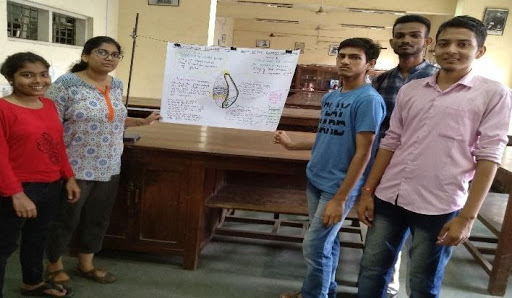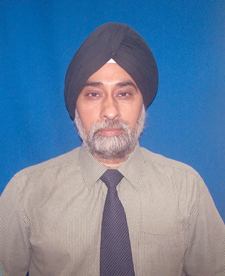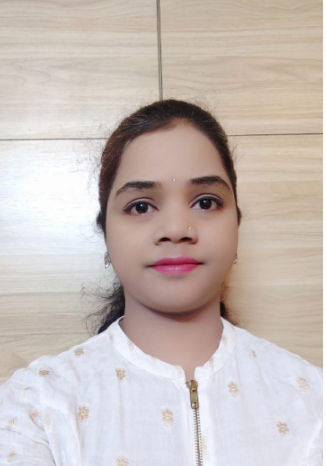It is a post graduate program which is of 2 years duration. Graduates in Botany can choose this course as a higher study option. This course aims at providing knowledge about the basic concepts concerning various areas associated with the field of Botany.
Autonomy has given us the opportunity to frame the syllabus with a blend of Classical and Applied Botany which will open an array of opportunities in Higher Studies, Entrepreneurship, Research and Consultancy. Students will be geared up to get jobs in various industries such as Cosmetic, Pharmaceutical and Horticulture Industry.
show more... show less...
Flipped classroom is used by many of faculty members. Learners are provided with Web link of videos before the actual teaching, in order to demonstrate certain processes. Group discussions also facilitate to convey certain complex concepts. Students are distributed in small groups and peer assessment among them is practiced. Cooperative learning strategy is applied to make teaching learning process interactive. Students prefer project based learning over other methods because it gives more hands-on experience and improves their practical skills. Review writing of research articles is one of the activities specifically designed for PG students. Field based experiments are conducted for PG students particularly to understand the concepts of Ecology.
It is a career-oriented course for botany graduates. These Post-graduates have equal job openings in the Private sector and Government sector. They have good employment opportunities in several foreign countries as well. A number of fields open up for botany post-graduates to excel in such as



For detail LOCF (Learning Outcome-based Curriculum framework) please refer below link
The course focuses on lower group of plants like Algae,mycology and learner will be able to understand microbiology as interdisciplinary approach in plant diversity.
This course deals with Cryptogams like bryophyta and pteridophyta and phanerogams as gymnosperms .Learner will be able to predict the evolution pattern of extinct plants by studying paleobotany.
The course content is based on taxonomy and ethnobotany with basic concepts in principle of pharmacognosy and related medicinal plants.
This course is based on functions in botany which includes economic botany ,phytotomy,palynology and developmental botany.
Learners will be able to predict the plant-environment interaction after they study the physiology of photosynthesis, Seed and Stress physiology. Learners can design in vitro growth conditions through the concept of metabolism of plant growth hormone.
Learners will be able to demonstrate the relationship between organism and corresponding niche after studying the concept of ecology and population ecology. Environmental Botany, Plant geography and forestry enables them to predict the interaction between population and environment.
Learners will be able to interpret the structure and regulatory function of nucleic acids with the concept of molecular biology and Gene expression control. Recombinant DNA Technology and Genetic engineering principals enables them to apply the technique in research for innovation.
This interdisciplinary course involves practical aspects of Biostatistics and Bioinformatics. Research methodology and IPR concepts are introduced to design the research projects and facilitate the legal aspect of research as intellectual property.
This course introduces advanced techniques for separation and detection along with important laboratory equipment of sedimentation and visualization.
This course provides an outline of the concept of Gene mapping. It covers fundamentals of cancer in correlation with erroneous cell cycle regulation. The course also gives a glimpse of inborn errors of metabolism, their biochemistry, manifestation and therapies, along with different genetic tools useful for diagnostic purposes.
This course elucidates fundamentals of plant tissue culture and its advanced applications for metabolite engineering, aiming at in-demand synthesis of biomolecules.
This course deals with advanced applications of biotechnology in industry, with recent trends in nanotechnology. It also provides a good overview regarding entrepreneurship skills.
This course provides information about immunity , immunological techniques and also gives an overview of clinical research.
This course will introduce students to research ethics and acquaint them with the free accessible Open educational research tools and the research funding agencies.
Differentiators
Head of the Department
We are happy to answer all your admission related enquiries. Fill out the form and we will be in touch with you shortly.
We acknowledge the receipt of your enquiry. Our team will get back to you shortly.
